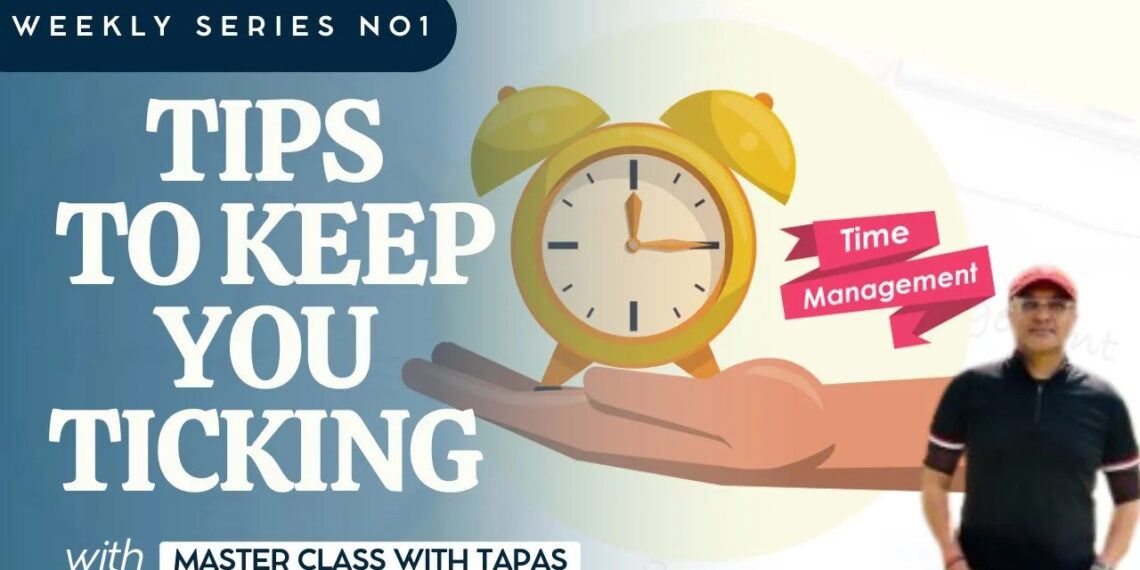Time Management : Tips To Keep You Ticking
A key competency for success and productivity in today’s fast-paced environment is the ability to manage one’s time effectively. Here in this episode of “Master Class with Tapas,” we’ll be delving into the complexities of effective time management and priority setting to help us reach our goals.
Recognizing what matters most is critical in our pursuit of efficiency. Our efforts will be focused on what matters most if we set clear objectives and manage our time wisely.In this article, we will discuss some ways that may help you to reap the most benefits from the time you have.
First of all, we should apply the SMART framework to set the goals. The SMART goal is specific, measurable, achievable, realistic and has a schedule. The SMART framework provides us with the plan we need to achieve our dreams.

Upon a SMART goals making don’t be general. Make a distinction between amorphous goals such as “finish the tasks fast” and clear objectives like “prepare the daily report in two hours”. This way, it is possible to measure progress and evaluate whether you achieved the goals or not. The application of the quantifiable criteria will allow us to stay focused, whatever our goal is to increase productivity or to meet definite deadlines.
First and foremost, we must identify the goals that are possible to reach, which is given the limitations of own resources. However, we are able to make good progress on our objectives by breaking the big target into smaller and manageable activities. Once we set goals that are important, they help us progress in our careers or our personal lives in sync with our overall goals.
Finally, one more thing to mention is that time limit you set for yourself makes you more responsible, which gives you less chance of postponing your tasks. A six o’clock morning ritual of waking up every day for the next thirty days can help you stay on course and accountable.
A combination of time management techniques with SMART objectives may doubly produce a high output. As an example, the Pomodoro Technique aims at working in short, intensive bursts, followed by short breaks in order to improve performance and focus. Creating a schedule with certain time slots guarantees schedules discipline and structure, while grouping jobs together reduces the number of task switching.
Furthermore, by learning to say no to non-essential chores and prioritizing our commitments, we may save our time and energy for pursuits that are in line with our aims. In order to maintain concentration and productivity throughout the day, it is essential to split jobs into smaller portions and include frequent pauses to refresh our thoughts.
Prioritization basically entails figuring out what we want to do in the long and near term, then dividing that work into smaller, more manageable chunks and distributing our time and effort appropriately. Good time management is about more than just getting things done; it’s about giving our undivided attention to the things that matter most.
We appreciate you coming to our master class today. We wish you the ability to master your time, be more productive, and move purposefully towards your objectives after reading these ideas. Make sure you subscribe to “Master Class with Tapas” so you can get even more helpful tools and insights. Make sensible priorities till we meet again, and may success always be at your side.
